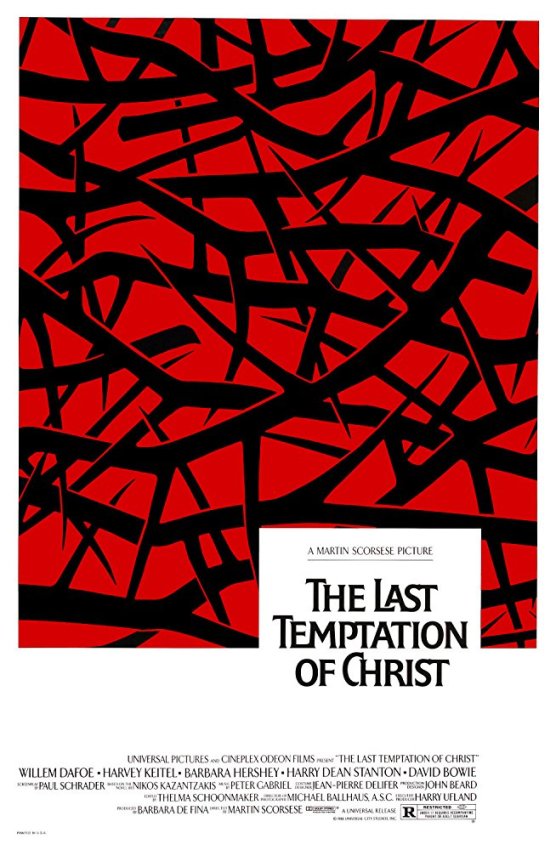
The Last Temptation of Christ provoked extraordinary fury upon its release in 1988, but one would like to the world is ready for this film in 2017. Last Temptation is challenging and mysterious, but ultimately stirring and powerful, with a final message of love, sacrifice, and virtue. That said, as the title rather explicitly details, director Martin Scorsese is interested in both Jesus’s otherworldly grace and his human failings.
Last Temptation inverts the classic biblical film, replacing scale and grandeur with intimacy and anguish. Scorsese plays against the template established by a previous generation’s sweeping epics – The Ten Commandments, The Greatest Story Ever Told, Ben-Hur – and employs something more akin to the gritty style he helped popularize in the ‘70s New Wave of American film. We start with Jesus (Willem Dafoe) as a young carpenter, tormented by messages from God that he cannot understand. Jesus soon begins preaching, gathers his disciples, and is ultimately crucified. Last Temptation essentially follows the arc of every modern era superhero movie (albeit 15 years before they cemented the trope) – a young man struggles with his supernatural abilities, eventually accepting his fate and attempting to combat evil, and then finally faces his most difficult trial.
Scorsese depicts the setting with an alienness befitting a far-off Star Wars planet, only more barbaric and cruel – there is a pervasive sense that at any second something inexplicable and brutal may happen. Although Jesus does most of his Greatest Hits, like resurrecting Lazarus and turning water into wine, he is depicted as not only conflicted and confused, but alternately violent, egotistical, crazed, and dangerous. When you put it that way, I guess it’s easy to see why many were so offended, but Scorsese (working off a deeply felt Paul Schrader script) is simply trying to find the relatable humanity of Jesus. Who wouldn’t act a little unstable when you’ve got God talking to you, disciples waiting on your every word, and a bunch of pissed off Romans hunting you down?
Dafoe has an unconventional magnetism as Jesus. His weird intensity is perhaps not what comes to mind when you think of Jesus Christ, but he fully owns the role in a way many actors could not. Scorsese makes some deliberately atonal choices with the supporting roles, with a result that is probably less effective than whatever exactly he was striving for. David Bowie and Harry Dean Stanton are both curious and distracting in bit parts, emblematic of the strangeness which some embrace in this film and which others find off-putting.
Of course, with Scorsese at the the helm, Last Temptation features several memorable, arresting scenes and bravura images. The last half hour, a segment which is at first disorienting before becoming unexpectedly powerful and emotionally resonant, is among the finest work of his career.
